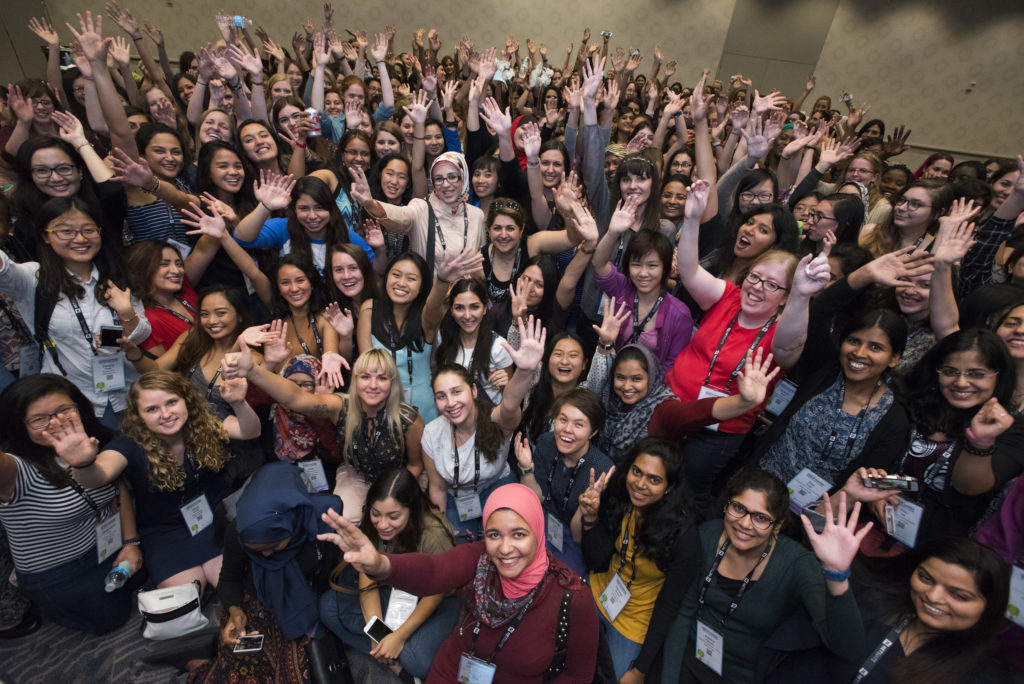Reading Susan Fowler’s allegations of appalling sexual harassment and an unresponsive human resources department inside Uber this week gave us goose bumps. Not only did it echo disturbing anecdotes we gathered from interviewing hundreds of women across the tech ecosystem about the toxic “bro” culture still tolerated in many corners of the tech industry (and documented in research such as the “Elephant in the Valley” report which found that 60% of SV women surveyed have experienced sexual harassment), but we had actually witnessed a discussion of sexism inside the Uber’s engineering ranks that seemed to foreshadow Fowler’s eye-opener.
It was December 11, 2015 and co-author Samantha Walravens was tagging along with software engineer Tracy Chou who was invited by the company’s #LadyENG and #LaddieEng groups to speak about inclusion and closing the gender gap at a lunchtime event. Chou, who went on to co-found Project Include with Ellen Pao among others, was at the time still working at Pinterest and had received national attention for her crowdsourced data that revealed the tiny numbers of women working in the technical ranks of Silicon Valley darlings. As we write in Chapter 1 of our book, one of the women in the meeting put Tracy on the spot and asked what Uber could do to improve its image so it can recruit more women? Tracy asked if she meant the brand or “Is there stuff that needs to be addressed internally?” and went on to say that Uber couldn’t fix its reputation if it didn’t address concerns on the inside first. This meeting took place about a month after Fowler had joined Uber.
Now more than two years later, Uber’s CEO Travis Kalanick (who told GQ that “Boober” is how he refers to the effect he and his company have on his desirability to women) is promising a swift investigation into the company culture. We are inspired by Fowler’s courage to stand up and speak out and are reminded once again that the power of grass roots activism and social media can never be underestimated. Within minutes of posting her story, Fowler’s blog post was shared incessantly across Facebook and Twitter, sparking outcry.
In our reporting for the book, we cull together the amazing stories of brave women across the tech world — developers, founders, investors, educators and advocates — who have united to change the culture of tech and to create new opportunities for women and people of all backgrounds. Some of those trailblazers include Tracy Chou; Rebecca Miller-Webster and her Write/Speak/Code conference that helps female software developers hone their writing and public speaking skills; Sukhinder Singh Cassidy, founder of theBoardlist, a platform to help companies recruit board-ready female directors; Natalia Oberti Noguera, whose Pipeline Angels boot camp for women angel investors is creating an new stream of capital for female founders; Kathryn Finney, founder of digitalundivided and the new BIG Accelerator in Atlanta that helps black and Latina entrepreneurs launch their startups; Kathryn Minshew and Alex Cavoulacos, co-founders of The Muse, Sheila Lirio Marcelo, founder and CEO of Care.com, Yunha Kim co-founder of Locket and Simple Habit, who are proving that women-led businesses can deliver big-time; Dr. Maria Klawe, president of Harvey Mudd College and Dr. Lenore Blum, distinguished professor of computer science at Carnegie Mellon University, who have led important efforts to boost the number of women majoring in computer science. And SO many more! What we found is that correcting gender imbalance is a nuanced and complicated problem. There is no magic bullet. But efforts to increase diversity on boards and in the C-suite, to funnel more venture investment to female founders, to crush stereotypes of who works in tech by increasing the visibility of female technologists and corporate leaders and to inspire a new generation of girls who see themselves as tomorrow’s builders and innovators are underway.
This is not a time to feel defeated. “Geek Girls” will continue to rise up. The Uber scandal reinforces the important and tireless work of the “sisterhood shaking up tech.” And they will #persist.







